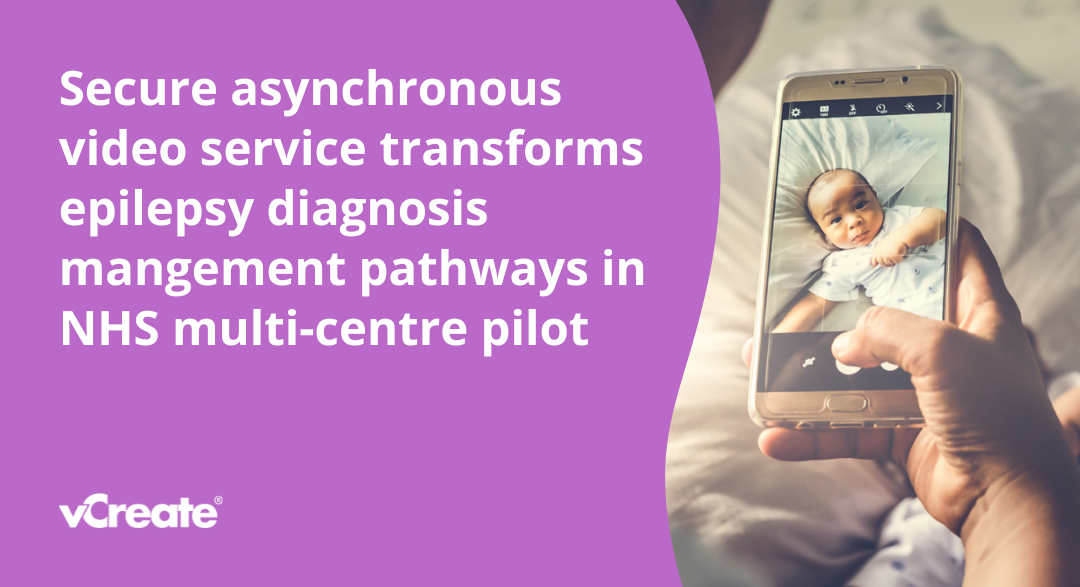Secure asynchronous video service transforms epilepsy diagnosis and management pathways in NHS multi-centre pilot
29 February 2024

Making an epilepsy diagnosis can be extremely challenging. Evaluating neurological conditions which produce intermittent and unpredictable symptoms is reliant on a detailed oral history of the possible seizure from the patient and a witness. Without seeing an event for themselves, clinicians can struggle to make an accurate diagnosis, leading to misdiagnosis.
In 2019, the Neuroscience team at Glasgow’s Royal Hospital for Children began exploring whether an existing NHS service could be developed to facilitate the sharing of patient videos with clinical teams for neurological diagnosis and management.
In 2020, the collaborating teams developed vCreate Health, a secure clinical video service which connects patients and carers with their neurology team for convenient, remote clinical decision-making and care.
Patients and families who are concerned about potential seizures can upload smartphone-recorded videos of an event to vCreate’s secure cloud-based system, along with bespoke contextual data for review. From this data, clinicians can schedule a follow-up appointment or investigation, make changes to medication, provide reassurance of ‘normal’ behaviour and even make a diagnosis.
Consultant Paediatric Neurologist at Glasgow’s Royal Hospital for Children, Professor Sameer Zuberi, said: “Through the service, our team at Glasgow were able to review more patients, including those who lived long distances from the hospital, while reducing in-person appointments.”
vCreate has transformed how video is utilised in healthcare, providing families and patients a secure pathway to access specialist support remotely and helping clinicians to prioritise investigations and treatments for the most at-risk patients.
Professor Zuberi said: “vCreate’s pilot data and feedback from families has been incredibly positive. We have witnessed a noticeable reduction in time taken to achieve a diagnosis and therapy and, crucially, we’re helping reduce the number of epilepsy misdiagnoses.”
“vCreate is now likely the largest carer-recorded video database in the world and is a valuable research and teaching resource. Videos are classified by event types and epilepsy syndromes which help us build curated archives of common and rare conditions which, with appropriate enhanced consent, can be used for research and teaching”
Alongside outpatient support, the service is also aiding clinician-to-clinician communication, allowing healthcare professionals to invite clinicians both in and outside of their organisation to provide second opinions, further supporting clinical decision-making.
Read the full case study here or email us to request a demo.
